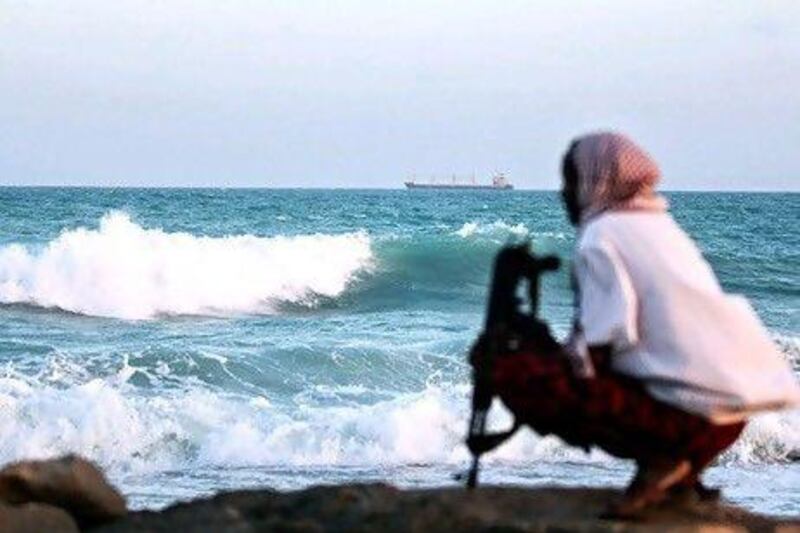Piracy is threatening the UAE's coastal economy as attacks are being staged following a brazen and successful ship hijacking outside Salalah Port in Oman.
The Fairchem Bogey, managed by Anglo-Eastern Ship Management, based in Mumbai, was seized on Saturday as it was awaiting berthing instructions. All 21 Indian sailors on board were taken hostage.
Tim Stear, the global head of maritime security for control risks based in Dubai, said attacks off the coast of Oman could endanger the gulf maritime industry, which includes cruise ships, superyachts and marine transportation.
"A year ago there was a view that you could sail into the Arabian Gulf without having to encounter problems if you were coming from the Maldives, for example," he said. "But it has all brought it home now that this is not an 'off the coast of Somalia' problem. This is also an Arabian Sea problem."
The attack on a ship so close to the Omani coast and in the Sultanate's coastal waters is one of the most audacious raids on a maritime vessel and a sign that hijackers are becoming more daring, even as intergovernmental task forces have deployed navies to protect the vital shipping corridor off the Somali coast.
"Whether it is off the coast of Oman or somewhere else, we are appalled at this terrible situation," said Keith Nuttall, the group commercial manager of Gulftainer, the Sharjah ports operator, who noted that there were currently hundreds of seafarers in Somalia on captured ships. "I know it is a complex issue, and that many navies of the world are working on combating this, but it is still a depressing state of affairs."
The scourge of piracy has huge potential to disrupt the region's maritime industry. The Gulf is a crucial body of water for the transportation of the region's oil wealth, with nearly 40 per cent of the world's traded oil supply passing through the Strait of Hormuz.
In addition, the region has a growing cruise line industry and has stated its ambitions to be a global destination for sailing competitions. Ras Al Khaimah narrowly missed out on becoming the location for the America's Cup race last year because of a legal dispute between the two competitors, but it was piracy that was behind the decision last week to abandon plans for the Volvo Ocean Race to sail directly to the Gulf from South Africa.
Boats will sail from Cape Town to an undisclosed port before being transported closer to the finish in Abu Dhabi. In the next stage of the global race, the boats will sail from Abu Dhabi over the New Year and will then be transported to another undisclosed location before continuing on to the stage finish in China.
"We have consulted leading naval and commercial intelligence experts and their advice could not have been clearer: 'Do not risk it'," said Knut Frostad, the chief executive of the Volvo Ocean Race.
Veesham Shipping, based in Dubai, which owns oil tankers and ships that transports cars and trucks, has fallen victim to several hijackings over the years, including an attack from Somali pirates as well as a more recent incident off the coast of Nigeria. Much of its work focuses on Africa, including carrying humanitarian goods to the more secure southern area of Somalia. The attacks and the persistent threat of more incidents has caused a great deal of personal anguish for Ajay Kumar Bhatia, the owner of Veesham. "We always sleep in fear when we put vessels in that area," he said.
The financial implications are just as worrying. Insurance companies often require companies such as Veesham to hire security guards on board. A journey to Africa could cost more than US$80,000 (Dh293,836) in insurance and security costs alone, Mr Bhatia said.





